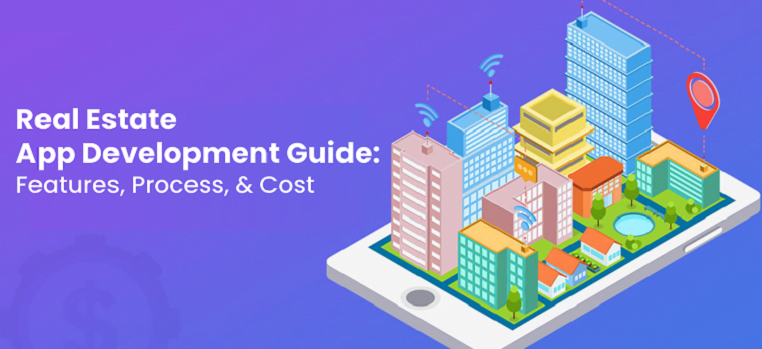Advances in technology have revolutionized numerous industries, and the real estate market is no different. A real estate app development company, clients, and brokers have all changed dramatically as a result of technological advancements. Developing real estate apps has allowed for the extension of technological breakthroughs to all types of properties.
Stakeholders can be updated with valuable information regarding properties as the real estate business continues to grow. The real estate agents take prominence in the process. Companies that develop real estate apps can take advantage of the extensive, widely available data across mobile platform applications.
Important:- Start Your Taxi Business like a Pro With An Uber-like App
Realtors have the opportunity to acquire experimental data and statistics because of tailored real estate apps. These apps simplify keeping track of investments and property trades, allowing landlords to emphasize their primary tasks such as business operations, leasing, and property management.
Real estate apps mitigate the need to have people handle property-related data and help in automating the process on a larger scale.
What are the Different Features Of Real Estate Apps?
A real estate app development company provides different forms of apps. Businesses should be aware of the form of the app they require since they communicate with their clients, and the appropriate type should be chosen, which may affect the real estate app development cost.
1) Property Trade App
Customers can easily purchase and sell homes on this sort of real estate app. This online platform provides customers with a database of registered properties, complete with images, addresses, rates, and other pertinent information, so that they may acquire them based on their needs and budget.
2) Real Estate Agent App
This is for the use of agents. All of the property listings are placed up for sale by the agencies. They’re organized into categories so that consumers may search by location, price, or facility.
3) Property Management App
This aids agents in keeping track of their property listings as well. They may use the app to keep track of things and acquire information at any time.
4) 3D Virtual Tour App
Real estate applications incorporate VR and AR technology to provide consumers with 3D visual tours of homes for sale.
5) Real Estate Investment App
Since bespoke app development services are used to conduct real estate transactions, businesses may invest in them. Investors can take care of properties that have been placed up for sale.
Process of Developing Real Estate Apps:
The real estate industry has to go through several issues and challenges when incorporating real estate apps. Companies developing these apps need to overcome these challenges to take full advantage of enterprise-grade app solutions.
Drastically, the real estate app development cost may rise if issues are not addressed down the road. Legal actions might have to be taken when sensitive data is breached.
Following are some key challenges faced while developing custom-made apps:
-
Cost/budget
Cost is one of the striking issues when real estate businesses try to switch operations from legacy methods to digitally enhanced business operations. Small scale realtors need to invest a substantial sum in integrating advanced technology and being user-friendly at the same time. So, they undergo a financial constraint in their development.
-
Collection of data (database)
An on-demand app development company needs to fetch accurate information on all real estate and other property-related data, which is as challenging as integrating into the app. They should ensure that the database is up to date and that the clients and realtors get accurate information every time they are open for business.
-
Privacy/security
As financial, banking information, and other sensitive data of clients and vendors need to be possessed by real estate businesses, that information should be handled with care. This information must be kept safe and confidential by avoiding illegal access to tenant and vendor systems. Privacy concerns remain significant, particularly in applications for small to medium real estate enterprises which have certain security flaws.
-
Target intended audience
This is also a significant barrier to overcome when developing a real estate mobile app. A real estate app development company should determine its target audience once they start developing real estate mobile apps. Youth have been more prominent as homeowners and renters in recent years. This shift is forcing real estate advertising professionals to rethink their marketing and app development methods.
Moreover, virtual tours and high-quality videos are also required for real estate apps. This paradigm change from traditional photos and in-person tours to films and virtual tours is difficult. However, it is vital to capture the intended audience.
How to overcome the challenges?
The goal of real estate app development is to address the industry’s issues. Budget constraints can be mitigated by considering cross-platform app development for real estate apps. It is a more cost-effective method since it allows developers to create an app for both mobile Android and iOS at the price of one platform compared to native app creation.
This significantly reduces the real estate app development cost by a disparity. The app development company can look after the security of the app by incorporating two-factor authentication and related security measures to protect sensitive information.
It is simple to add sophisticated VR and AR tech features to provide consumers with 360˚ virtual tours and high-quality photos. Creating an immersive experience through real estate mobile applications may attract youth and other classes.
How Much Does Real Estate App Development Costs?
You can check the cost of three categories of app:
- Simple App: $10,000-$30,000
- Medium App: $30,000-$40,000
- Complex App: $40,000-$70,000
Conclusion:
Real estate apps such as the real estate market are continually growing. It has the potential to be a significant business development zone in the current period. After contracting an app development company, the app development process begins with the selection of the type of app that is required and the implementation of the essential features. Several factors influence the overall cost of development.
The challenges faced down the road when developing real estate apps are many. However, strategies and solutions are available to overcome those challenges. As such, personalized, integrated services in the app can shoot out many different issues. Therefore, appropriate measures should be taken to address them.




